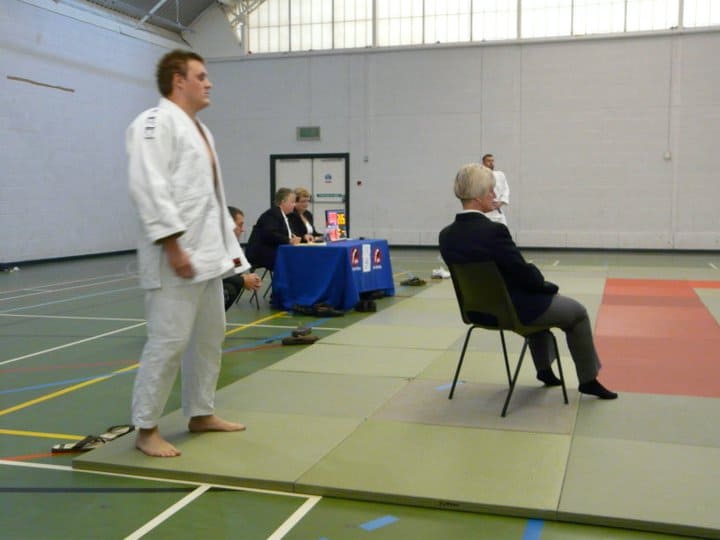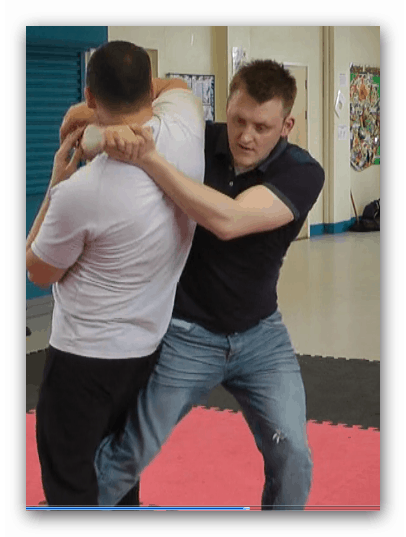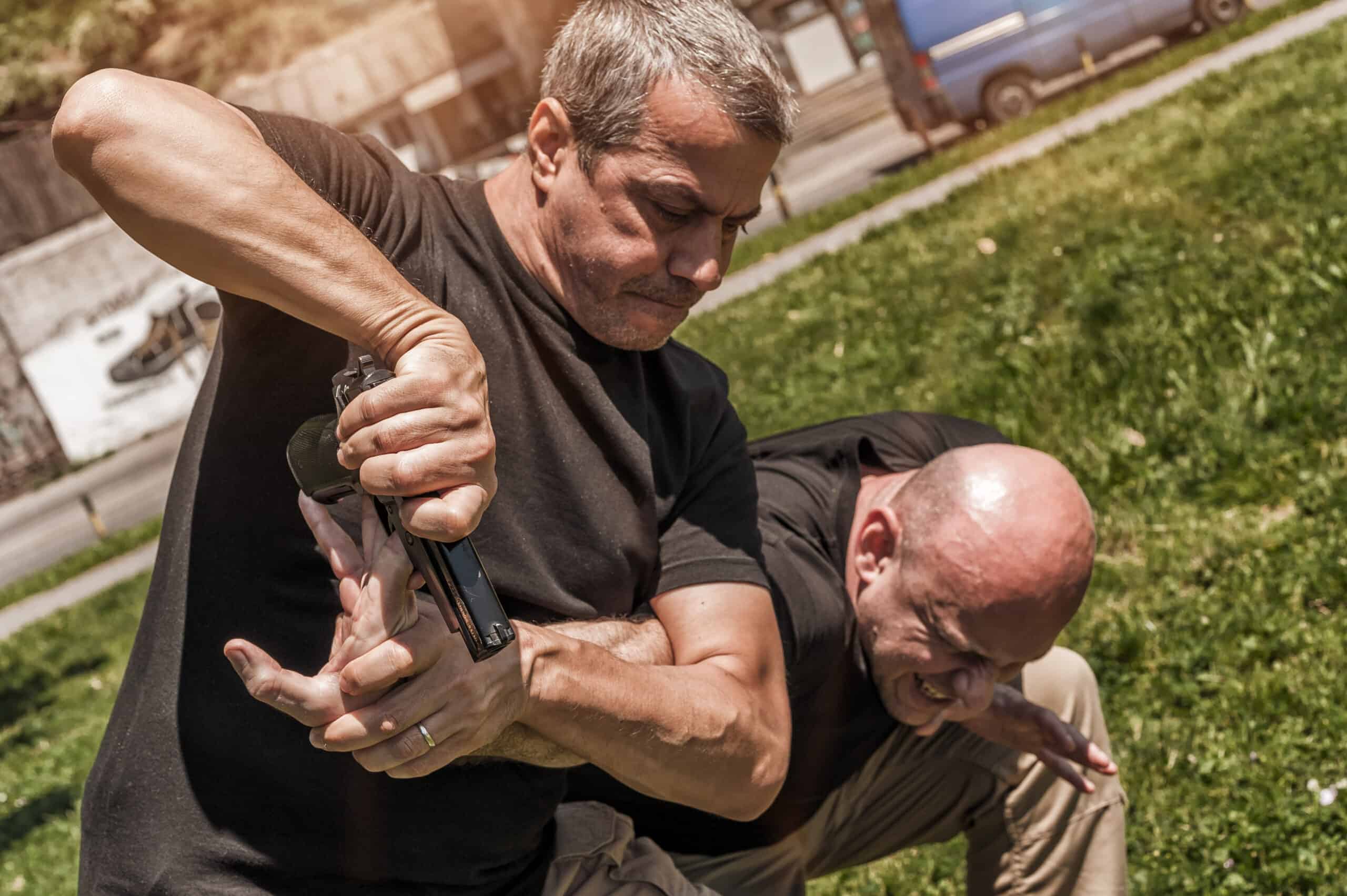The Self Defence Expert
In-Depth Self-Defence & Home Security, Articles, Advice and Product Reviews
All Content is Reviewed by Ex-Police
Every article on this site is reviewed by a former police officer, experienced martial artist or self-defence instructor.
Over 2.1 Million Readers
We've been creating content for over a decade in this space. Our articles and advice is trusted and searched for.
Real World Experience
Our content is written by those with real world experience. From crime prevention advice to self-defence.
About This Site

Howdy Defender.
My name is Andrew Holland and I'm the owner of The Self Defence Expert.com.
For the last 12 years, we've written the best articles on self-defence, home security and martial arts that have been read by over 2.1 Million people.
Not only am I a Judo black belt, a former boxer, fitness instructor and experienced in numerous martial arts, I am a police veteran with over 17 years experience.
Which means I have seen the realities of violence first hand and I am now here to help you.
We're on a mission to help people to stay safe.
So come and join us.
Some Rapid Self-Defence Questions and Answers
If you're looking for some fast self-defence answers, this short section can help.
Use the quick find menu to see all questions on the page, but chances are you've found us after you've had an incident or are concerned about something. These quick find answers are designed to help you to gain information faster.
Over the years, we've been asked a range of questions, but these are the most common.
What is Self-Defence?
Self-defense is the use of physical force, or the threat of using physical force, to protect oneself from harm. It can be used in response to a real or perceived attack, or may be preemptive in nature.
Generally speaking, self-defense should only be used when all other options have been exhausted.
What Are The Benefits of Self-Defence
Learning self-defence can provide a range of benefits, both physical and mental. On a physical level, self-defence training can help to build strength, stamina and coordination. It can also teach people how to better protect themselves in the event of an attack.
On a mental level, self-defence can help to build confidence and improve problem-solving skills.
It can also provide a sense of empowerment and greater peace of mind.
In addition, self-defence can be a great way to meet new people and make friends. Whether you're looking to improve your fitness or boost your confidence, learning self-defence is a great way to achieve your goals.
Can You Hit Someone If They provoke You?
No, you cannot hit someone simply because they provoke you.
This is because, as a general rule, people are not allowed to use violence against others, even if they are feeling angry.
However, there are some exceptions to this rule. Such as if you feel you are about to be attacked immediately. This can be evidenced through their aggressive langauge, behaviour, body language or indeed their presence at your location.
Context is everything.
Which Martial Arts is Best For Self-Defence?
Can You Carry a Weapon to Defend Yourself?
It depends on where you live in the world. In the UK it is illegal to carry any object that is made, used, intended or adapted to cause harm to another person.
However there are some exceptions to this such as the use of reasonable force. For example, if you are attacked by someone with a weapon, you can also grab an object to protect yourself.
However in the US an other countries, some states and nations have rules that allow you to carry weapons, some even allow concealed firearms.
Check the laws for your areas for further information.
Self-Defence Law
In order to determine whether an act of self-defense is legally justified, certain criteria must be met. Generally speaking, the person claiming self defense must prove that they were acting in a manner that was necessary and reasonable under the circumstances. This includes an assessment of whether:
• The threat was imminent;
• The fear of harm was reasonable;
• The response was proportional; and
• Whether there was a duty to retreat before resorting to violence.
Is the Threat Imminent?
The first component of self-defense law typically centers around whether there was an imminent threat of harm. In other words, did the person claiming self-defense have reason to believe that their safety was at risk?
This can involve determining whether or not an attack was about to take place or if there were actions that indicated an attack would shortly occur.
Was the Fear of Harm Reasonable?
The second component involves determining whether it would have been reasonable for someone in similar circumstances to feel threatened by the potential attacker. This can include examining factors such as size difference between individuals involved and any prior history between them.

Some Facts About Me

- Joined the Police At 16 Years of Age As a Cadet
- Became Full Time Officer At 18
- Was British Police Boxing Champion
- British Police Judo Champion Kyu Grade Divsion
- Judo Black Belt
- Qualified Fitness Instructor
- Former Pro Boxing Inspector
- Appeared on BBC Radio 2 as a Self Defence Expert
- Training in Vale Tudo and Grappling
Our Best Content
We've put together some amazing content over the years, and below are the articles people have found most helpful
In this huge guide, we break down the best martial arts for self-defence.
You'll quicky be able to see what martial art is right for you and why.

In this article, we break down how to survuve being attacked by a large group.
With advice, tactics and techniques, this is one of our most loved guides.
In this article, based on a huge study we did, we provide the internets best guide on surviving knife attacks.
Our Self-Defence Book: Defeat Any Attacker

If you want to dive in and advance your self-defence knowledge our book, Defeat Any Attacker is ideal.
Click the button below to check it out.


